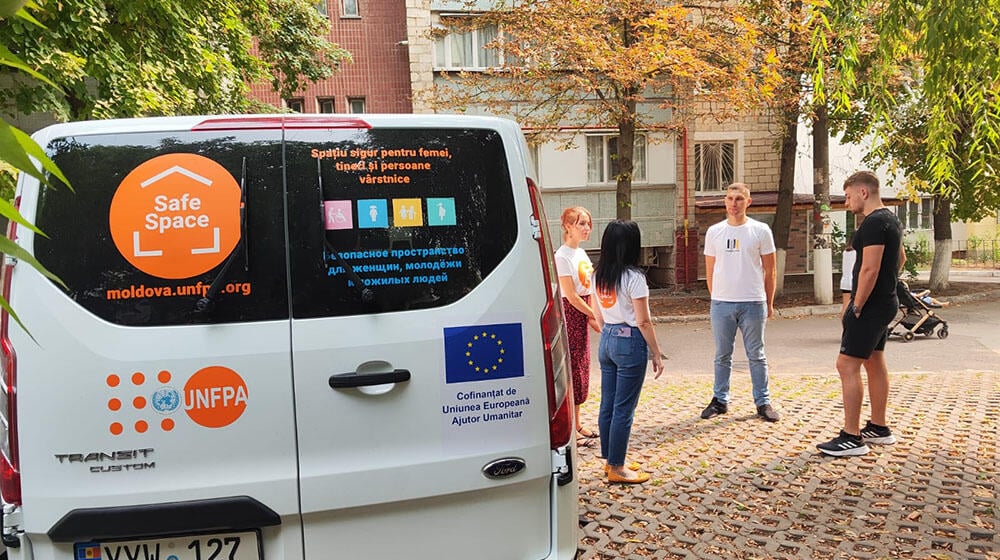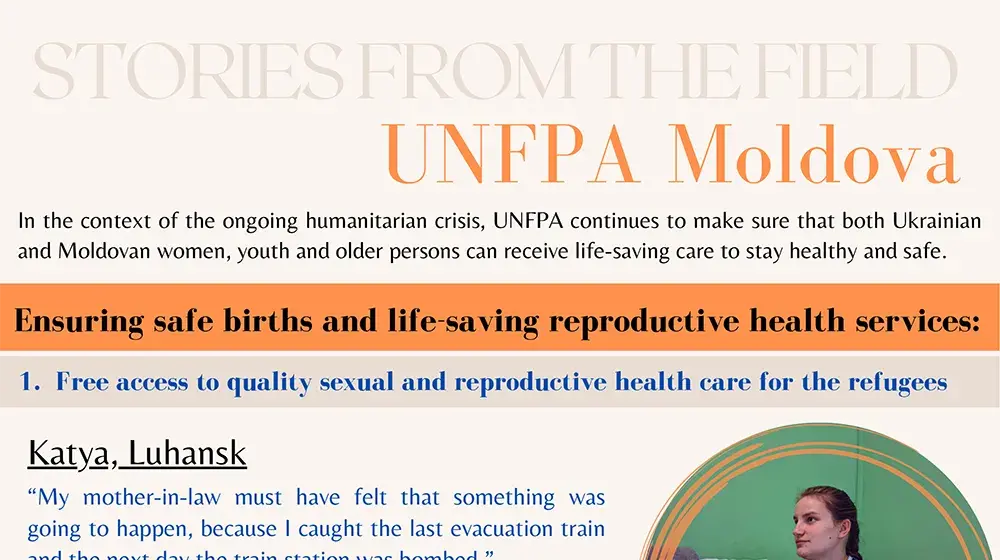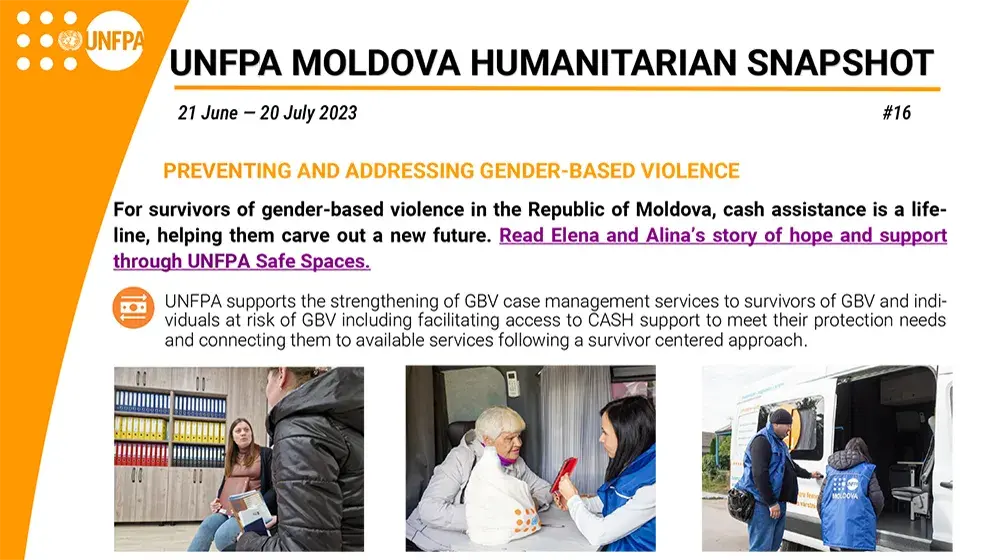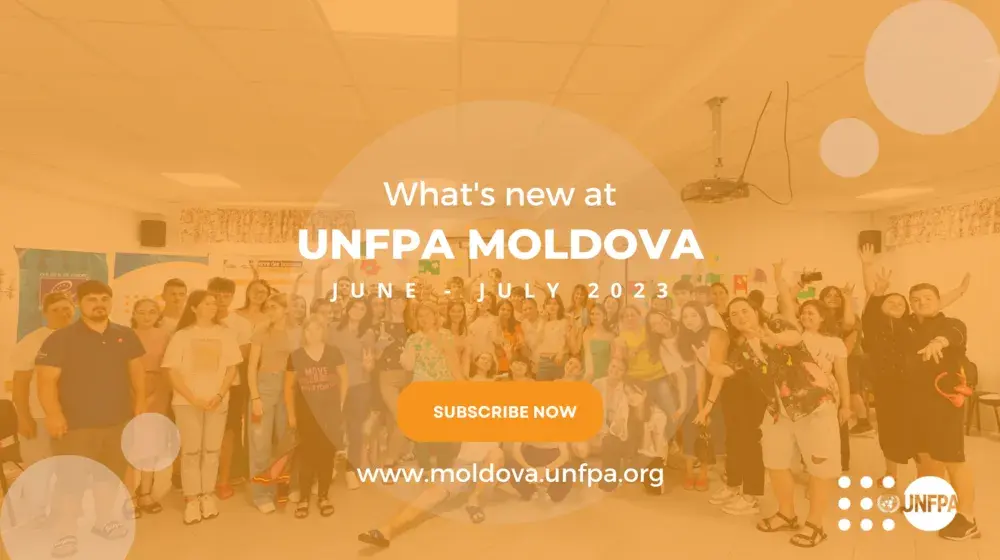DROCHIA, Republic of Moldova – „Many survivors are financially dependent on their aggressors, and they want to break the vicious cycle to separate from [them],” explained Mariana Zaporojan, a case manager at a safe space in Drochia run by UNFPA’s partner Artemida, a local NGO.
For survivors of abuse and those at risk in the Republic of Moldova, cash assistance has become a lifeline, helping them break free from cycles of violence and build a new life for themselves. For women like Elena* and Alina*, it has proved vital in securing food, shelter and medical care for themselves and their families.
„Financial assistance is often critical for survivors who are facing multiple challenges, and protects them from further risk,” explained Ms. Zaporojan. „They often don’t have the courage to leave their abusers for fear that they will not be able to financially support themselves and their children and start an independent way of life, free of violence. [They are afraid they] risk losing their children”.
Survivors include women and girls fleeing the conflict in Ukraine, who are at increased risk of exploitation, violence and abuse, including sexual and physical violence and trafficking.
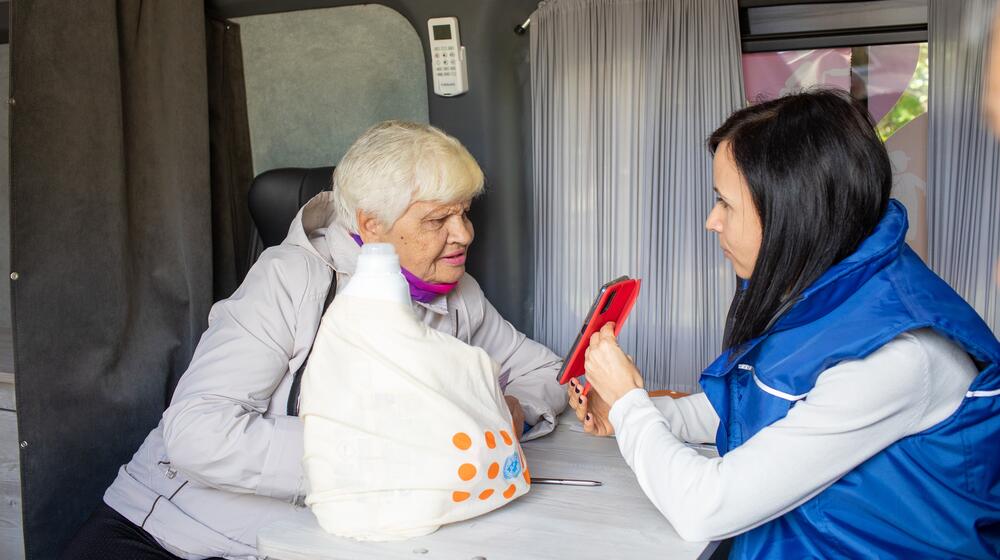
A fight for survival
Elena is one of those women. She fled her hometown in Ukraine at the beginning of the war with her three children. The emergency situation and subsequent breakdown of support systems has had a devastating effect on her and close to 6 million fellow Ukrainian refugees.
„The scariest was when the children asked for food and I had nothing to offer them”, she recalled. „The only person I considered close to me in Moldova was my neighbour. I went to him with a request to lend me some money or food so I could feed my children. Then I got the biggest shock I’d had since the war, when he proposed to have sex – that's the only way he would give me money”.
Thankfully, Elena was able to find help through a UNFPA mobile safe space, one of eight that have been launched across the country to support women fleeing violence and conflict following Russia’s full-scale invasion of Ukraine in February 2022. The spaces provide sexual and reproductive health information, support and psychosocial counselling for survivors, and referrals to specialized services.
Cash assistance, provided with support from the European Commission, is another part of the strategy to help survivors and those at risk of gender-based violence to get back on their feet.
For example, Elena was able to buy food, hygiene products and medicine for her family, and to move to a new home where she and her children could feel safe and secure.
Cash assistance is also offered to local women in need of support. For survivors like Alina, who lost her home in a fire due to a tragic incident caused by her late, physically abusive husband, financial assistance was a crucial step towards rebuilding her life. „I was left on the streets, with a child, without clothes or basic necessities, and no source of income”, she explained.
„This help was life-saving for me – I bought clothes for myself and my child, shoes, food and building materials to repair an outdoor kitchen so that we can live there in the winter”.
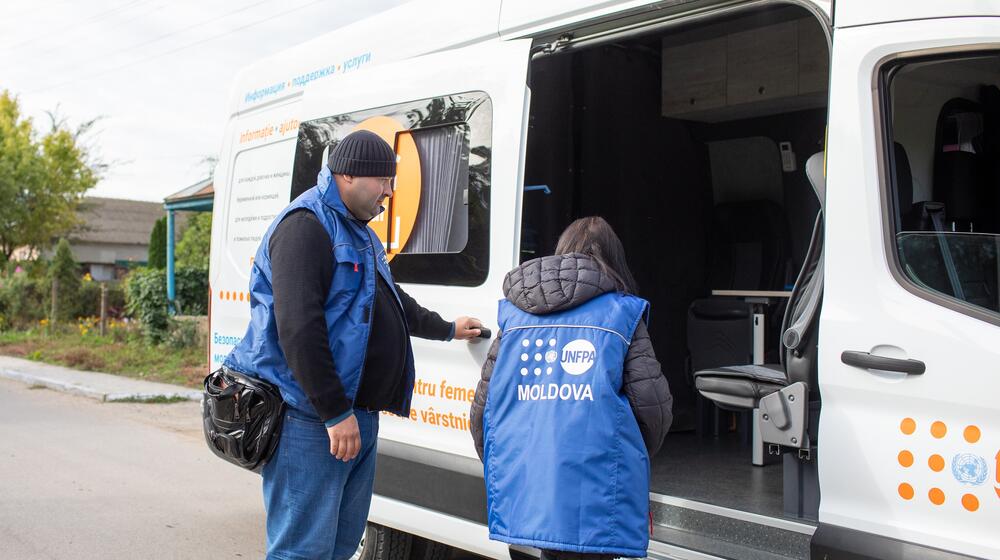
Immediate relief, long-term commitment
Since February 2022, more than 30,000 people, both refugees and from host communities, have received support through 28 UNFPA safe spaces (20 static and 8 mobile) across central, northern and southern regions of the country, including in hard-to-access and remote areas.
Across the broader region, UNFPA and its partners have also trained more than 350 people to bolster gender-based violence services.
For Alina, the support gave her the strength to keep moving forward. “We are going to rent another house so that we no longer have to depend on my landlord. At the moment, we feel very safe with the children… I hope I can provide my child with a better life.”
*Names changed for privacy and protection

